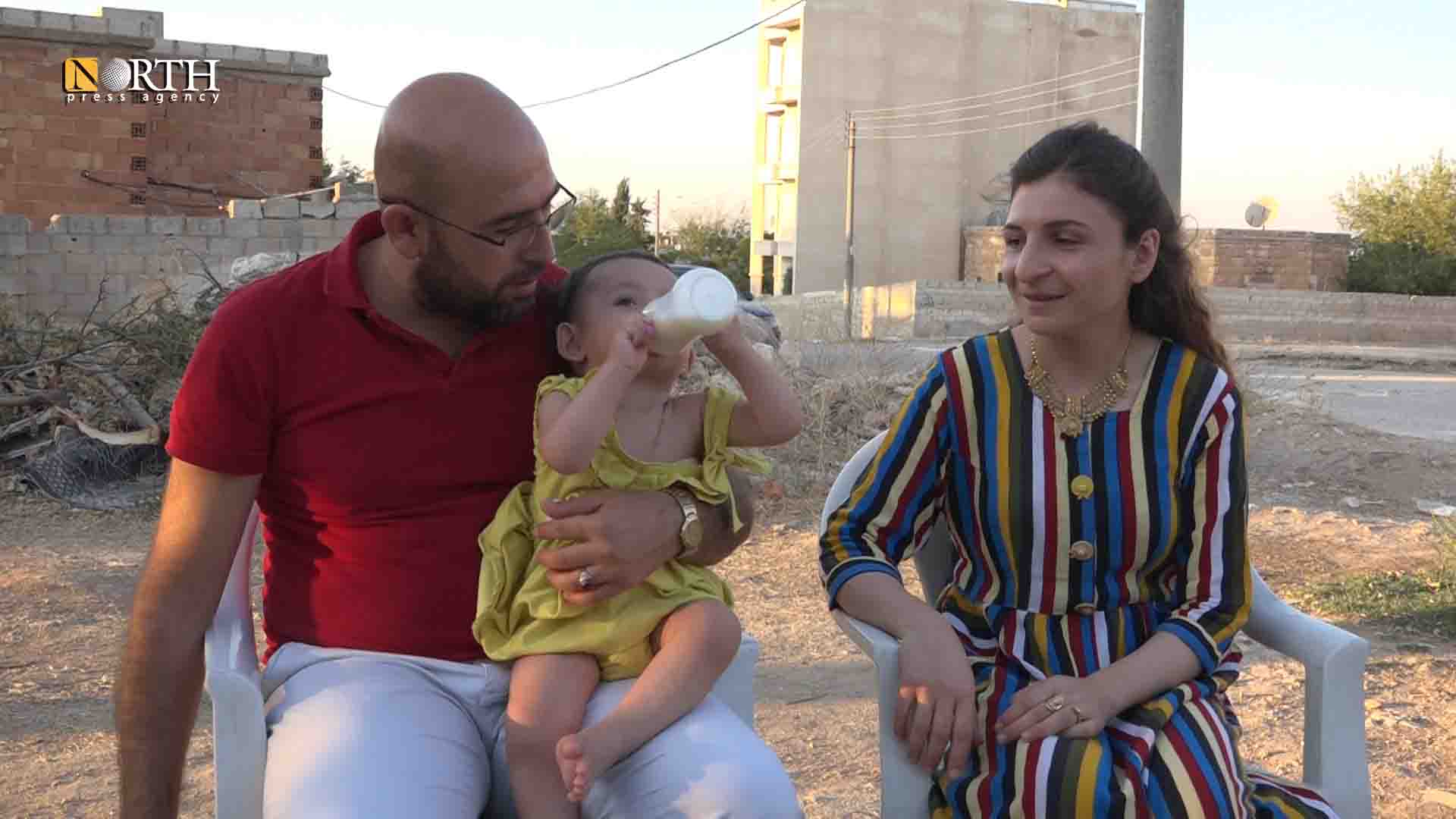KOBANI, Syria (North Press) – A decade of war in Syria forced millions of Syrians to migrate to neighboring countries and Europe, but some of them have refused to settle in their new countries and preferred to return to their homeland.
Shukri Khalil, a resident of northern Syria’s city of Kobani began his migration in 2011 at the beginning of the protests in Syria which evolved into uprisings and unstable security conditions. His first destination was Morocco.
In Morocco, Khalil worked with his brother, who had already left the country, digging wells for about two years.
Khalil sits in front of his house, and seems sure of his bold move to return to take care of his mother.
Khalil told North Press the story of his migration and his reasons for returning back to Kobani.
“People are Machines”
Khalil said that in 2014, ISIS began its war on Kobani, resulting in the migration of its people, some of them arrived in Morocco then they migrated together to Spain.
“I stayed for about two months in camps in Spain, where the refugee situation was not good, so we went to Germany,” he added.
In 2014, Khalil arrived in Germany and stayed for a while in Dortmund until he was transferred to Bielefeld, where he received residency.
In Germany, he had to study German language before starting a career. He studied for six months, at which point authorities asked him either to work or to complete studying for a particular job.
Khalil worked at a book press for four months. “We had to wake up at 3:30 to arrive at work at 6:00, and had great pressure and precise schedules for a break, breakfast and lunch,” he said.
He describes his experience with the work as feeling like a machine.
“Single mother”
Khalil kept thinking of his mother, who lived alone in Kobani, although she had four sons who are living in Morocco, the Netherlands, and Germany.
Despite their attempts to bring her, the mother refused the asylum in Germany, and her constant response was, “I can’t live far from Kobani.”
After the Kurdish-led Syrian Democratic Forces (SDF) expelled ISIS militants from the city in January 2015, their mother began restoring the house with the money that her sons had sent, but suffered a broken leg.
Khalil says his brothers’ attempts to prevent him from returning due to the unstable security situation in Syria and their reminding him of the difficulties that he faced before he arrived in Germany did not convince him.
“Neighbors and friends can help my mother for a day or two, but they also say ‘she has four children,’ but now she is alone,” he replied to his brothers.
But the mother was not the only reason for the return of her immigrant son. He felt he was not integrated into the new society and did not adapt to life there.
“I felt like I was in prison because of the legislation there. You only get your freedom for 21 days on vacation,” he said.
“We got the lowest wage in Germany, which was € 8.5 per hour, while a German earns € 11 for the same work,” he added.
”Return and rest”
Khalil suffered during the return trip to Kobani, as he did not have a visa to the Kurdistan Region of Iraq, so he went to Greece and then through Turkey to Jarablus, which was controlled by Free Syrian Army (Turkish-backed opposition armed groups) and ISIS.
But he was thrilled when he arrived in Kobani in 2016, as he saw people from Kobani at a security checkpoint controlled byt he Autonomous Administration in North and East Syria (AANES).
“A car drove me home; my mother was buying from a street vendor, and she didn’t believe I was back,”
“We hugged each other and I was so happy to be back.”
“Here you speak your own language; you have friends, relatives and neighbors, but in Germany it took me 10 hours to see my brother,” he said.
Khalil compares his work in Germany and Kobani. “The nature of my work here is comfortable. I am committed to working from 8 am to 3:00 pm, whereas in Germany I didn’t feel comfortable for 15 hours of work,” he explains.
He added that he knew many in Germany who wanted to return, but they could not because of living conditions.
Khalil restored his house, bought a car, got married and had a daughter named Khatun.
He currently works in the Finance Board affiliated with the AANES, does sports, and in the winter, he meets his friends in evenings.
“I live with my wife, my mother, and my daughter and we are well placed. The salary is average; my wife is a school teacher. She helps me with the house, and my brothers help us too,” he said.
He sometimes thinks of returning to Germany because of the deteriorating living situation, but when he remembers the working conditions there he kicks the idea out of his head.
In Kobani, Khalil has friends with whom he plays sports, and he sees the improvement of the city’s situation.
“I know it’s not comparable to Europe, but the services here are good,” he added.

